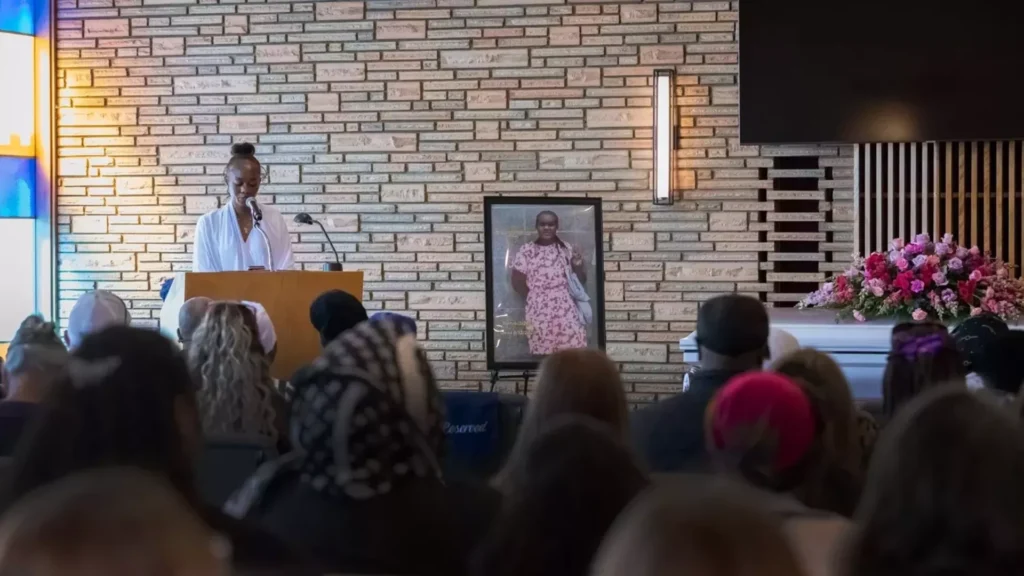Black farmers face specific, outsized challenges in rural mental health crisis

KOSU by Anna Pope, September 23, 2024: Located in southern Oklahoma, the Town of Tatums is home to 111 people, according to the U.S. Census Bureau. If you or someone you know is considering suicide or is in emotional crisis, dial or text 988 to reach out to the National Suicide & Crisis Lifeline.
TATUMS – Oklahoma State Highway 7 runs by the Mary T. Tatums Municipal Building in one of Oklahoma’s historic All-Black towns, Tatums.
Bonnie Hooks sits with her neighbors at one of the round tables inside the building. Like her grandmother, Hooks is a farmer in Tatums, where she raises pigs.
“I have grand babies,” Hooks said. “When they come, they like to pick the pigs up and bottle-feed them.”
Between 1865 and 1920, Black people founded and governed over 50 All-Black towns in the state. Only 13 remain today. Hooks and others at the table grew up helping with their family’s farm.
“I’m just a straight-up country girl, and I love the country and the hogs,” Hooks said.
Hooks said she could see her parents deal with stress, but it was never their main focus.
“I would just say even though, you know, the struggles that they went through and now have passed on down to us— it’s a mental state, but at the same time you don’t block it out,” Hooks said. “It’s reality, it’s in front of you.”
Farming is a demanding job saddled with stressors like increasingly unpredictable weather, rising input costs and changing commodity prices. On top of those issues, producers of color deal with the impacts of racism, which is linked to mental health conditions like depression and PTSD.
For years, mental health issues have been rising among people living on America’s farms and rural spaces. In Oklahoma, agriculture is a major sector of the economy. There were more than 70,300 farms in 2022, according to the latest Census of Agriculture from the U.S. Department of Agriculture.
Suicide rates are climbing faster in rural areas. They grew 46% in rural areas compared to about 27% in metro areas from 2000-2020, according to the Centers for Disease Control and Prevention. Farmers and ranchers also have higher rates of depression and face barriers to accessing mental health care services, such as traveling longer distances to receive care, affording the costs of services and a shortage of behavioral health providers.
Although Black people often have higher rates of psychological distress than their white counterparts, they are less likely to receive care and get poorer quality of care. In 2018, Black people were also 1.5 times more likely to be uninsured than white people.
Discrimination and racism are connected to bad mental and physical health outcomes.
Williard Tillman, Oklahoma Black Historical Research Project Executive Director, said in his experience, many farmers and producers worry about taking care of their families, but figuring out the best way can be a challenge.
“Because if you’ve been given something that’s been passed down from generation to generation to generation, and you have the breaking point of actually losing everything that was given to you,” Tillman said. “That’s where we are, but very seldom do you ever hear about this and our ability to be able to help in the situation til it’s in the fourth quarter and you only got two minutes or something left in the game.”




